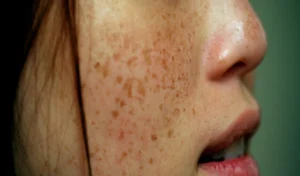
Common problems like corns on the feet, which are prickles on the skin for most people, can be early symptoms of diabetes. Diabetics are very vulnerable to foot complications for several reasons, including poor blood circulation and nerve damage that reduces sensation in the feet. This is because a person may not be able to feel injuries to the feet, such as corns, which are thickened areas of skin caused by pressure or friction. If these corns are not treated, they can lead to infection, then complications such as ulcers and, in the worst cases, even amputation.
Also read: Andhra Pradesh: Explosion in pharma company’s reactor, at least 15 people injured
Prevention tips for diabetes patients:
Diabetics should pay special attention to their feet. It is recommended that the feet should be checked daily for signs of corn formation. In addition to avoiding tight shoes, cushioned shoes should also be worn to reduce stress on certain parts of the feet and avoid the development of corns. Also, maintaining normal blood sugar levels helps avoid nerve injury, and therefore, improves the general health of the foot.
Also read: Blue Screen of Death: When computers across the world stopped working, how to avoid this dangerous error?
When we spoke to Dr Anurag Leela from the Department of Endocrinology and Diabetes at Dr LH Hiranandani Hospital in Mumbai, he said that diabetic patients should pay special attention to their feet. This includes washing the feet regularly, applying lotion to soften the skin, trimming nails properly and avoiding walking barefoot to avoid accidents. If a corn develops, shaving, cutting or using commercial products to remove the corn should be avoided as it can worsen the condition. But consult your doctor for safe and viable treatment or you can consult an herbalist.
Diabetic patients should check their feet every day, also, they should visit an endocrinologist regularly, so that further complications can be avoided and diabetic feet remain healthy and pain-free. Just a reminder here, the best way to deal with such complications is early detection and proper management of diabetic foot complications.







